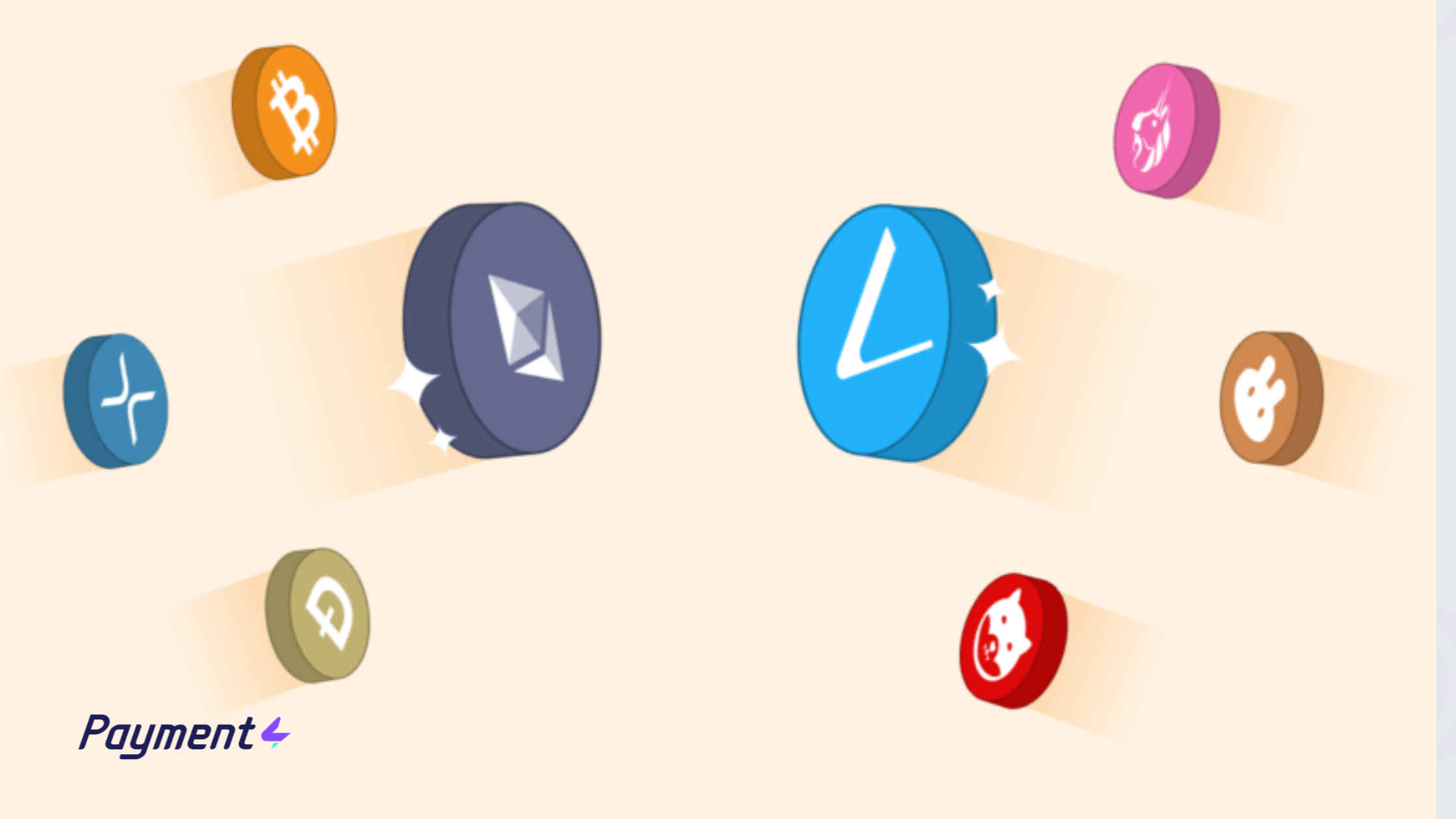In the rapidly evolving world of cryptocurrencies, the terms “coin” and “token” are often used interchangeably, but they represent distinct concepts. Understanding the difference between these two types of digital assets is crucial for anyone involved in the crypto space, whether as an investor, developer, or enthusiast. This essay will explore the fundamental differences between coins and tokens, their respective roles in the blockchain ecosystem, and how they impact the development and use of cryptocurrency payment gateways.
Definition and Purpose
Coins
Coins, also known as cryptocurrencies, are digital currencies that operate independently on their own blockchain. Bitcoin (BTC), Ethereum (ETH), and Litecoin (LTC) are prime examples of coins. The primary purpose of a coin is to act as a medium of exchange, store of value, and unit of account within its native blockchain ecosystem. Coins can be used for various transactions, from buying goods and services to transferring value across borders.
Tokens
Tokens, on the other hand, are digital assets created on existing blockchains through smart contracts. They do not have their own blockchain but instead leverage the infrastructure of another blockchain, typically Ethereum, which supports the ERC-20 and ERC-721 token standards. Tokens can represent a wide range of assets and functionalities, including utility tokens, security tokens, and governance tokens. They can be used for accessing decentralized applications (dApps), participating in Initial Coin Offerings (ICOs), and representing ownership in assets or organizations.

Technical Differences
Blockchain Independence
The most significant technical difference between coins and tokens is their reliance on a blockchain. Coins operate on their own blockchains, with a dedicated infrastructure for validating and recording transactions. For example, Bitcoin operates on the Bitcoin blockchain, and Ether operates on the Ethereum blockchain.
Tokens, however, are built on top of existing blockchains. For instance, many tokens are created using the Ethereum blockchain and adhere to the ERC-20 or ERC-721 standards. This reliance on an existing blockchain means that tokens benefit from the security, decentralization, and infrastructure of the host blockchain without needing to develop their own.
Creation and Distribution
Creating a new coin requires building an entire blockchain network, which involves developing a consensus mechanism, setting up nodes, and ensuring the network’s security and functionality. This process is complex and resource-intensive.
In contrast, creating a token is relatively straightforward. Developers can use smart contracts to define and deploy tokens on an existing blockchain. Platforms like Ethereum provide frameworks and tools to simplify token creation, making it accessible even for smaller projects and startups.
Use Cases and Functionality
Coins
Coins are primarily used as digital money. They facilitate peer-to-peer transactions, enable cross-border payments, and can be held as investments. Some coins, like Bitcoin, are viewed as “digital gold” and a hedge against inflation. Others, like Ethereum, have additional functionalities, such as powering smart contracts and dApps.
Tokens
Tokens have a broader range of applications:
Utility Tokens: These provide access to specific services or products within a blockchain ecosystem. For example, Basic Attention Token (BAT) is used within the Brave browser to reward users and content creators.
Security Tokens: These represent ownership in an asset or company and are subject to regulatory scrutiny. They function similarly to traditional securities, offering dividends, profit shares, or voting rights.
Governance Tokens: These allow holders to participate in the decision-making processes of a blockchain project or decentralized organization. For instance, holders of Compound’s COMP token can vote on protocol changes.
Role in Cryptocurrency Payment Gateways
Coins in Payment Gateways
Cryptocurrency payment gateways primarily deal with coins. Merchants can accept coins like Bitcoin or Ethereum as payment for goods and services, leveraging the decentralized nature and lower transaction fees compared to traditional payment systems. Payment gateways convert these digital currencies into fiat currency if desired, providing merchants with flexibility and reducing the complexity associated with crypto volatility.
Tokens in Payment Gateways
While tokens are not as commonly used in direct payments as coins, they have specific applications within the payment gateway ecosystem:
Loyalty Programs: Tokens can be used in customer loyalty programs, allowing businesses to reward customers with proprietary tokens that can be redeemed for discounts, products, or services.
Access to Services: Utility tokens can be integrated into payment gateways to grant access to premium features or services within a platform.
Fundraising and Investment: Security tokens can be used in tokenized fundraising campaigns, allowing businesses to raise capital through Initial Coin Offerings (ICOs) or Security Token Offerings (STOs). Payment gateways can facilitate these transactions, ensuring compliance and security.
Regulatory Considerations
Coins
Coins often face fewer regulatory challenges compared to tokens. However, regulatory scrutiny is increasing as governments seek to establish frameworks for cryptocurrencies. Compliance with Anti-Money Laundering (AML) and Know Your Customer (KYC) regulations is crucial for businesses dealing with coins.
Tokens
Tokens, especially security tokens, face more stringent regulatory requirements. Issuers must comply with securities laws, which vary by jurisdiction. Utility tokens are also subject to regulations, particularly if they resemble investment products. Navigating the regulatory landscape is essential for token issuers and businesses incorporating tokens into their operations.
Choosing Between Coins and Tokens
For businesses looking to integrate cryptocurrency payment gateways, the choice between coins and tokens depends on their specific needs and objectives:
For Transactions: Coins are generally preferred for direct payments due to their widespread acceptance and established infrastructure.
For Specific Applications: Tokens are suitable for specialized use cases, such as loyalty programs, access to services, or fundraising. Businesses can leverage tokens to create unique value propositions and enhance customer engagement.
Conclusion
Understanding the difference between coins and tokens is fundamental for anyone involved in the cryptocurrency space. Coins operate on their own blockchains and are primarily used as digital money, while tokens are built on existing blockchains and serve various functions, from utility and governance to representing assets. Both play crucial roles in the blockchain ecosystem and offer unique advantages. By carefully considering their characteristics and applications, businesses can effectively leverage these digital assets to enhance their operations and embrace the future of digital transactions.
Payment4








